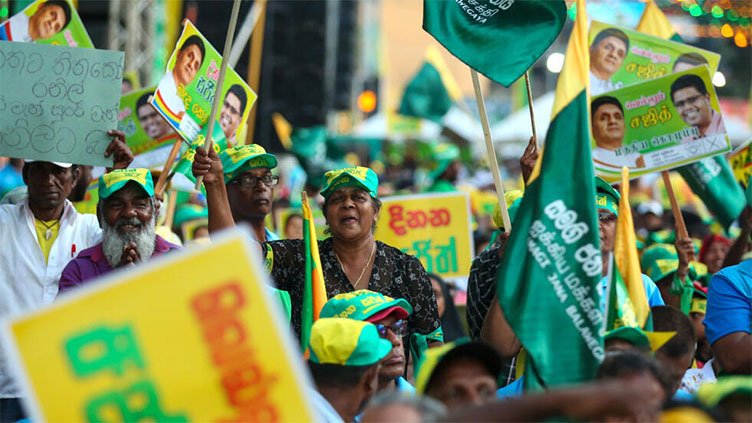Background of the Political Turmoil in Sri Lanka
The political turmoil in Sri Lanka has its roots in a confluence of socio-economic challenges that have plagued the nation for several years. The country’s economy, once thriving, began to experience severe downturns exacerbated by multiple factors, including the impacts of the COVID-19 pandemic, rising inflation, ial discontent, leading to widespread protests against the government, particularly targeting then-President Gotabaya Rajapaksa.
The protests, which started in early 2022, were primarily driven by rising prices of essential goods and shortages of fuel and medicine. As the public’s patience wore thin, demands for governmental accountability grew louder, and the protests transitioned from being largely peaceful demonstrations to more organized efforts aimed at removing the president from office. Key political figures, alongside civil society leaders, became prominent voices, advocating for political reform and expressing the need for a more accountable governance system.
These events ultimately culminated in a significant escalation of protests in July 2022, when demonstrators stormed the presidential residence, leading to Gotabaya Rajapaksa fleeing the country. This unprecedented act illustrated the depth of the public’s frustration and the rapid deterioration of trust in political institutions. Following his departure, a temporary government was established, which has had to grapple with the immediate needs of a nation facing dire economic circumstances and a restless populace demanding change.
This election marks a transformative moment for Sri Lanka as it attempts to rebuild its political framework. The political landscape has been markedly altered by the protests; thus, understanding the significance of this election and the potential for new leadership is crucial for forecasting the future governance of Sri Lanka. The outcome will have profound implications for both the political stability and economic recovery of the nation.
The Election Process and Voter Turnout
The election process in Sri Lanka is structured to ensure transparency and security, particularly in the aftermath of the recent political upheaval that led to the ousting of the former president. The counting of votes is a meticulous process that takes place under careful supervision by election officials, ensuring that all ballots are accurately recorded. Each polling station is equipped with electronic systems to facilitate efficient counting, which are backed by manual verification methods to address any discrepancies. To foster confidence among the electorate, independent observers have been deployed to monitor the counting process, reinforcing the integrity of the elections.
Voter turnout is a significant indicator of public sentiment and democratic engagement. In the most recent elections, preliminary reports show a noticeable increase in participation compared to the previous electoral cycle. Many citizens feel a renewed sense of civic duty following the protests that catalyzed political reform. Analysts suggest that the heightened voter turnout may also reflect a desire among the populace to influence the direction of the country’s future actively. In contrast, previous elections saw voter apathy largely attributed to a lack of faith in political processes and the belief that individual votes would not lead to meaningful change.
The motivations driving this surge in voter participation could be linked to various factors, including increased public awareness and a collective wish to hold leaders accountable. Moreover, the political climate surrounding the transition has stirred excitement and engagement, highlighting the importance of citizen involvement in shaping governance. A strong turnout not only demonstrates the electorate’s enthusiasm but also signifies the pivotal role that public participation plays in consolidating democracy in Sri Lanka. It is through active engagement that citizens can express their aspirations and expectations from the newly formed government.
Initial Results and Reactions from the Public and Political Leaders
As the votes are being counted in Sri Lanka’s first election following the upheaval that led to the ousting of President Gotabaya Rajapaksa, initial results are beginning to emerge. Early indications suggest that several opposition parties may have gained significant ground, with the Samagi Jana Balawegaya (SJB) and Janatha Vimukthi Peramuna (JVP) reportedly leading in various districts. These preliminary outcomes have caught many by surprise, as political analysts had predicted a tight race dominated by traditional ruling parties.
The public’s reaction to these early findings has been mixed. Many citizens, relieved by the prospect of change, have taken to social media to voice their optimism about the potential shift in leadership. They express hope that the new government can tackle pressing issues such as the economic crisis, fuel shortages, and food security that have plagued the nation in recent months. A palpable sense of excitement fills the air, with many proclaiming that this election represents a critical opportunity to reshape Sri Lanka’s political landscape.
On the other hand, some citizens remain skeptical, recalling the tumultuous political history of the country. This cautious optimism underscores a realization that effective governance will depend not only on who assumes power but also on their ability to unify a divided populace. Meanwhile, prominent political leaders have started issuing statements in response to the preliminary results. For instance, SJB leader Sajith Premadasa expresses confidence in the party’s ability to lead Sri Lanka into a new era, while the ruling party has urged their supporters to remain calm and patient as the final results are awaited.
Political commentators from both ends of the spectrum are quick to analyze these developments, emphasizing the significance of voter turnout and public sentiment. The initial results, galvanized by widespread public engagement, highlight the critical crossroads Sri Lanka finds itself at, and many are eager to witness how these developments will unfold in the days to come.
Looking Ahead: The Future of Governance in Sri Lanka
The recent election results in Sri Lanka signal a significant turning point in the nation’s political landscape, as the country seeks to emerge from a period of turmoil that culminated in widespread protests against the previous administration. The pathway forward involves the formation of new coalitions which may shape the governance structure, impacting policy directions and legislative agendas. The dynamics of coalition politics will likely play a critical role in determining the stability and effectiveness of the new government. Given the fragmented nature of the political parties, there is potential for both collaboration and conflict among varying ideologies.
Policy directions will heavily depend on the manifestos of the parties that secure parliamentary power. Economic recovery is paramount, as Sri Lanka grapples with crippling debt and the urgent need for fiscal reform. The new government must prioritize measures that restore public trust, which has been severely undermined. Forging a transparent governance framework may help in rebuilding this trust, ensuring that the grievances raised during the protests are addressed comprehensively. Key issues such as inflation, unemployment, and access to essential services require immediate attention to regain the confidence of the populace.
Additionally, the international community’s response to the election outcome will be crucial in influencing Sri Lanka’s foreign relations. Assistance from global partners, whether in the form of trade agreements or development aid, could bolster economic recovery efforts. Furthermore, Sri Lanka’s geopolitical positioning in South Asia will require careful navigation, particularly in the context of relationships with major powers such as India and China. Balancing these foreign relationships while addressing domestic needs will be a significant challenge for the new administration. In conclusion, the future of governance in Sri Lanka will depend on adaptive strategies that reflect both domestic priorities and international expectations. With prudent leadership, there is potential for a stable and prosperous Sri Lanka.

